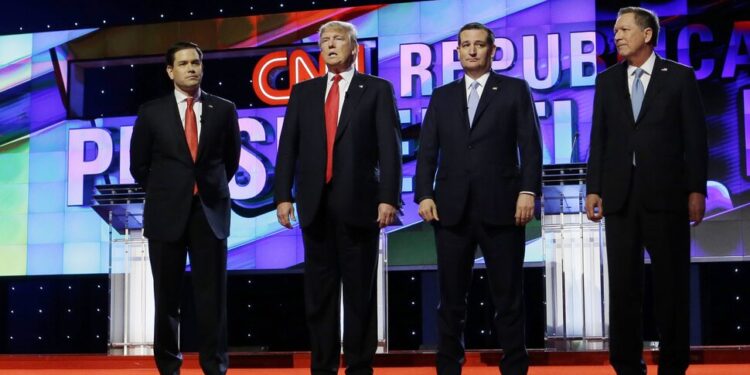ALAN DIAZ | AP
Story by the Editor: Oct 8, 2014
How much do race, gender, and income impact political influence? A recent study published in the NYU Law Review by University of Chicago law professor Nicholas Stephanopoulos provides significant insights.
Stephanopoulos utilized exit poll data to analyze the influence of race, gender, and income on policy-making in cases of major demographic disagreements. For instance, he examined how men and women, or whites and African Americans, differed on issues such as raising the minimum wage or mandating health insurance, and how these differences affected policy outcomes.
The study highlights that these gaps are particularly notable when opinion differences exceed 10 percentage points. Significant areas of divergence include:
- Women are more likely to support policies aiding the poor or unemployed, limiting Wall Street’s power, increasing the minimum wage, imposing gun ownership restrictions, and maintaining entitlement programs. Conversely, men are more inclined to support religious exemptions for contraceptive coverage.
- Racial divides show that African Americans, especially those under 30, are more likely to support the Affordable Care Act. Additionally, about 80% of African Americans are registered Democrats compared to 40% of whites. White Americans are more supportive of same-sex marriage and more likely to identify as pro-life among millennials compared to African Americans.
In cases of stark disagreement, women and racial minorities often see their preferences overlooked. Wealthier individuals also tend to have more sway over policy outcomes than those with lower incomes.
Women: The Most Politically Powerless Group
Among all demographics studied, including racial minorities and low-income individuals, women have the least influence on policy. Stephanopoulos found that when men and women significantly disagree on a policy, the likelihood of the policy being enacted decreases as support among women increases, plummeting from 80% to about 10%.
| Img source: www.vox.com |
State policy changes similarly reflect men’s preferences more than women’s. By comparing states’ overall ideological bent to different demographic groups, Stephanopoulos showed that women’s political ideologies have minimal impact on state policies.
| Nicholas Stephanopoulos | Political Powerlessness |
“The gap between men and women in political influence is larger than those between black and white or rich and poor Americans,” Stephanopoulos noted in an interview, emphasizing the often-overlooked gender differences in political influence.
African Americans: Politically Powerless at State and Federal Levels
Policy changes predominantly reflect white preferences. Stephanopoulos found that as white support for a policy increases, the likelihood of its adoption grows. Conversely, increased support from black communities does not correspond to higher chances of policy adoption and may even decrease the likelihood.
| Joss Fong | Vox |
These findings align with previous research, such as John Griffin and Brian Newman’s 2008 “Minority Report,” which demonstrated that black voters have significantly less influence over Congress compared to white voters, even when accounting for their numbers in the electorate.
Hispanic Voters: Limited Influence at Federal Level, Some Impact at State Level
While black Americans and women show relative powerlessness at both federal and state levels, Hispanic voters exhibit some differences. At the federal level, Hispanic support for policies has little effect on their adoption. However, at the state level, Hispanic beliefs have some impact, though still not as much as white constituents.
| (Nicholas Stephanopoulos/Political Powerlessness) |
Economic Disparities: Money Equals Power
Stephanopoulos’s study reaffirms the correlation between income and political influence. Those in the top 10th percentile are significantly more likely to see their preferred policies enacted than those in lower income brackets. At the state level, individuals earning more than $30,000 per year have roughly the same influence as those earning more than $75,000, but those earning less than $30,000 have markedly less influence.
Implications of Political Powerlessness
According to Stephanopoulos, “Political powerlessness matters because it helps determine ‘suspect class’ status.” Groups identified as “suspect classes” receive strict scrutiny under Equal Protection claims, making it easier to prove unconstitutional discrimination.
The courts have yet to define political powerlessness, but suggestions include numerical size, right to vote, financial resources, support of public opinion, and socioeconomic standing. Stephanopoulos’s model offers a clear metric: the ability of different groups to enact their preferred policies.
Recommendations Based on Data
Stephanopoulos suggests several changes based on his findings:
- Women and African Americans merit suspect class status, though the data does not support Hispanic classification as such. This discrepancy could prompt a reevaluation of current classifications.
- Poor individuals should be considered a suspect class. The Supreme Court’s decision in the 1970s to exclude the poor from this status appears to be a mistake based on the data.
- Women are more vulnerable to discrimination than previously thought, highlighting their alarming lack of political power despite legal protections and significant population share. Source: Vox
You can read the full paper here.ate.
Hispanic Voters: Limited Influence at Federal Level, Some Impact at State Level
While black Americans and women show relative powerlessness at both federal and state levels, Hispanic voters exhibit some differences. At the federal level, Hispanic support for policies has little effect on their adoption. However, at the state level, Hispanic beliefs have some impact, though still not as much as white constituents.
(Nicholas Stephanopoulos/Political Powerlessness)
Economic Disparities: Money Equals Power
Stephanopoulos’s study reaffirms the correlation between income and political influence. Those in the top 10th percentile are significantly more likely to see their preferred policies enacted than those in lower income brackets. At the state level, individuals earning more than $30,000 per year have roughly the same influence as those earning more than $75,000, but those earning less than $30,000 have markedly less influence.
Implications of Political Powerlessness
According to Stephanopoulos, “Political powerlessness matters because it helps determine ‘suspect class’ status.” Groups identified as “suspect classes” receive strict scrutiny under Equal Protection claims, making it easier to prove unconstitutional discrimination.
The courts have yet to define political powerlessness, but suggestions include numerical size, right to vote, financial resources, support of public opinion, and socioeconomic standing. Stephanopoulos’s model offers a clear metric: the ability of different groups to enact their preferred policies.
Recommendations Based on Data
Stephanopoulos suggests several changes based on his findings:
Women and African Americans merit suspect class status, though the data does not support Hispanic classification as such. This discrepancy could prompt a reevaluation of current classifications.
Poor individuals should be considered a suspect class. The Supreme Court’s decision in the 1970s to exclude the poor from this status appears to be a mistake based on the data.
Women are more vulnerable to discrimination than previously thought, highlighting their alarming lack of political power despite legal protections and significant population share. Source: Vox
You can read the full paper here.
















